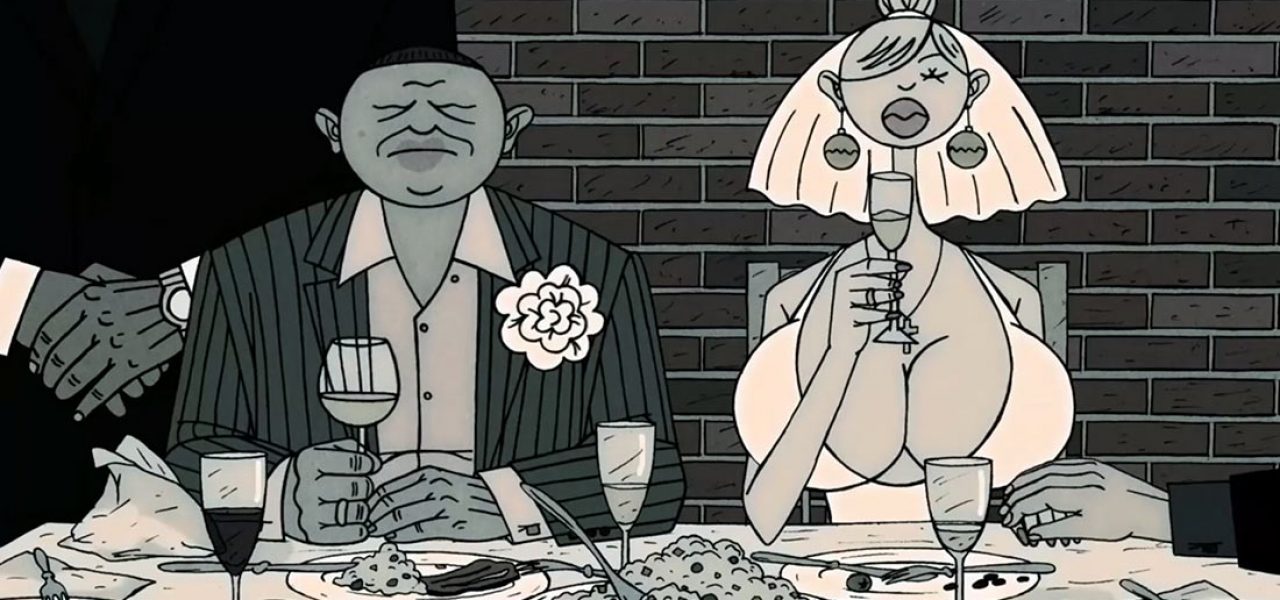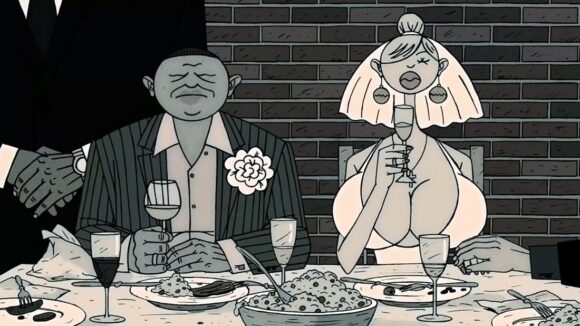

Youtube Continues To Hurt Independent Animators, Bans Award-Winning Animated Short
As the third-most visited website in the United States, Google-owned video platform Youtube is a must for independent filmmakers and animators who wish to have their work publicly visible. However, the company has poorly-regulated policies that are selectively enforced and can often do financial damage to filmmakers, as illustrated in a few recent cases.
Yesterday, Youtube banned the award-winning short film Villa Antropoff on the grounds that it contains “nudity, pornography, or other sexually provocative content.”
The Estonian/Latvian co-production, directed by Vladimir Leschiov and Kaspar Jancis, won an award at the 2012 Krakow Film Festival and was subsuquently nominated at the European Film Awards for best short film. The film, which is as timely today (and possibly moreso) than when it was released five years ago, is a look at post-Communist Europe, juxtaposing the lives of European citizens against the immigrants who aspire to become Europeans.
One of the film production companies that produced the film, Lunohod, shared the message they received from Youtube on their Facebook page, adding that they would not appeal. “What can we say… We are not going to argue with them,” the company wrote. Here is the full text of the message Youtube sent them:
Hi LUNOHOD,
As you may know, our Community Guidelines describe which content we allow – and don’t allow – on YouTube. Your video “Villa Antropoff” was flagged for review. Upon review, we’ve determined that it violates our guidelines. We’ve removed it from YouTube and assigned a Community Guidelines strike, or temporary penalty, to your account.
Video content restrictions
If a video contains nudity, pornography, or other sexually provocative content, it’s less likely to be allowed on YouTube. YouTube reviews content on a case by case basis and will make limited exceptions for appropriate educational, documentary, artistic, and scientific contexts. In such cases, we may apply an age restriction so that only viewers over a certain age can view the content. Learn more here.
The impact of strikesThis is the first strike applied to your account. We understand that users seldom intend to violate our policies. That’s why strikes don’t last forever – this strike will expire in three months. However, it’s important to remember that additional strikes could prevent you from posting content to YouTube or even lead to your account being terminated.
How you can respondIf you believe this was a mistake, we’d like to hear from you. Please follow both of these steps as simply deleting the video won’t resolve the strike on your account. The next time you sign in you will be asked to acknowledge this strike on your account. If you would like to appeal this strike, please submit this form. Our team will thoroughly review your appeal and will contact you again very soon. We value your opinions and feedback. Please take a few minutes to fill out our survey.
Sincerely, - The YouTube Team
While Villa Antropoff contains a few short scenes of cartoon nudity, Youtube makes clear exceptions in its policies for works that are presented in “artistic contexts.” The fact that a Youtube employee could have reviewed this film and not recognized the film’s artistic context illustrates a serious breakdown in the company’s ability to police content based on its own policies.
Youtube indeed has a category for age-restricted content that would have allowed this film to remain online. “In cases where videos do not cross the line, but still contain sexual content, we may apply an age-restriction so that only viewers over a certain age can view the content,” the company writes in its policy guide, adding that “Videos containing nudity or dramatized sexual conduct may be age-restricted when the context is appropriately educational, documentary, scientific or artistic.”
In another recent instance, Kirsten Lepore’s smash-hit Hi Stranger was deemed by Youtube employees to contain adult-content and was slapped with an “age-restricted tag” on the video.
However, there are dozens of other copies of Lepore’s film floating around Youtube that do not have the age-restricted tag. Since Youtube’s algorithms prioritize “safe” content over age-restricted content, the unauthorized uploads of Lepore’s film that haven’t been hit with the age-restricted tag appear above her official copy on the site’s search results. Youtube’s parent company, Google, applies this same policy to its own Google Search results.
Further, since age-restricted videos cannot be monetized with ads, Lepore has been unable to earn any income from Youtube with her film. But she discovered that some unauthorized uploads of her film, which hadn’t been marked with the age-restricted tag, were enabling ads and monetizing her film.
“Since their uploads haven’t been flagged, they’re able to make ad money off my video which I think is completely unfair,” Lepore tells Cartoon Brew. “I’ve either messaged those people, issued takedowns, or just flagged them for nudity myself so they couldn’t make money like me.”
While the simplest answer would be to simply advise animation filmmakers to share their work on other web video platforms, that is not a long-term solution nor does it benefit filmmakers. The relatively filmmaker-friendly Vimeo, for example, is the 92nd most-visited website in the U.S. compared to Youtube’s #3 position. The eyeballs are on Youtube, and the company should increase its efforts to understand and engage with the creative community, especially since it relies so heavily on their content for its success.
(h/t, Zippy Frames for alerting us to the story)

.png)